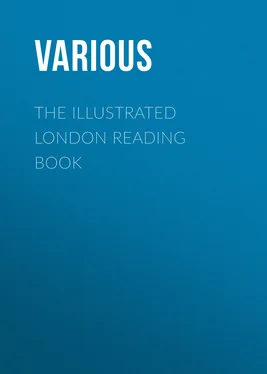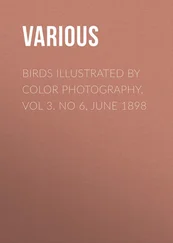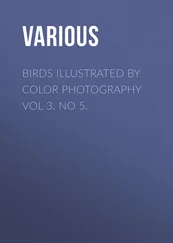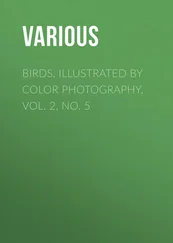Various - The Illustrated London Reading Book
Здесь есть возможность читать онлайн «Various - The Illustrated London Reading Book» — ознакомительный отрывок электронной книги совершенно бесплатно, а после прочтения отрывка купить полную версию. В некоторых случаях можно слушать аудио, скачать через торрент в формате fb2 и присутствует краткое содержание. Жанр: foreign_prose, foreign_antique, на английском языке. Описание произведения, (предисловие) а так же отзывы посетителей доступны на портале библиотеки ЛибКат.
- Название:The Illustrated London Reading Book
- Автор:
- Жанр:
- Год:неизвестен
- ISBN:нет данных
- Рейтинг книги:5 / 5. Голосов: 1
-
Избранное:Добавить в избранное
- Отзывы:
-
Ваша оценка:
- 100
- 1
- 2
- 3
- 4
- 5
The Illustrated London Reading Book: краткое содержание, описание и аннотация
Предлагаем к чтению аннотацию, описание, краткое содержание или предисловие (зависит от того, что написал сам автор книги «The Illustrated London Reading Book»). Если вы не нашли необходимую информацию о книге — напишите в комментариях, мы постараемся отыскать её.
The Illustrated London Reading Book — читать онлайн ознакомительный отрывок
Ниже представлен текст книги, разбитый по страницам. Система сохранения места последней прочитанной страницы, позволяет с удобством читать онлайн бесплатно книгу «The Illustrated London Reading Book», без необходимости каждый раз заново искать на чём Вы остановились. Поставьте закладку, и сможете в любой момент перейти на страницу, на которой закончили чтение.
Интервал:
Закладка:
THE BUSHMEN
The Bosjesmans, or Bushmen, appear to be the remains of Hottentot hordes, who have been driven, by the gradual encroachments of the European colonists, to seek for refuge among the inaccessible rocks and sterile desert of the interior of Africa. Most of the hordes known in the colony by the name of Bushmen are now entirely destitute of flocks or herds, and subsist partly by the chase, partly on the wild roots of the wilderness, and in times of scarcity on reptiles, grasshoppers, and the larvae of ants, or by plundering their hereditary foes and oppressors, the frontier Boers. In seasons when every green herb is devoured by swarms of locusts, and when the wild game in consequence desert the pastures of the wilderness, the Bushman finds a resource in the very calamity which would overwhelm an agricultural or civilized community. He lives by devouring the devourers; he subsists for weeks and months on locusts alone, and also preserves a stock of this food dried, as we do herrings or pilchards, for future consumption.
The Bushman retains the ancient arms of the Hottentot race, namely, a javelin or assagai, similar to that of the Caffres, and a bow and arrows. The latter, which are his principal weapons both for war and the chase, are small in size and formed of slight materials; but, owing to the deadly poison with which the arrows are imbued, and the dexterity with which they are launched, they are missiles truly formidable. One of these arrows, formed merely of a piece of slender reed tipped with bone or iron, is sufficient to destroy the most powerful animal. But, although the colonists very much dread the effects of the Bushman's arrow, they know how to elude its range; and it is after all but a very unequal match for the fire-lock, as the persecuted natives by sad experience have found. The arrows are usually kept in a quiver, formed of the hollow stalk of a species of aloe, and slung over the shoulder; but a few, for immediate use, are often stuck in a band round the head.
A group of Bosjesmans, comprising two men, two women, and a child, were recently brought to this country and exhibited at the Egyptian Hall, in Piccadilly. The women wore mantles and conical caps of hide, and gold ornaments in their ears. The men also wore a sort of skin cloak, which hung down to their knees, over a close tunic: the legs and feet were bare in both. Their sheep-skin mantles, sewed together with threads of sinew, and rendered soft and pliable by friction, sufficed for a garment by day and a blanket by night. These Bosjesmans exhibited a variety of the customs of their native country. Their whoops were sometimes so loud as to be startling, and they occasionally seemed to consider the attention of the spectators as an affront.
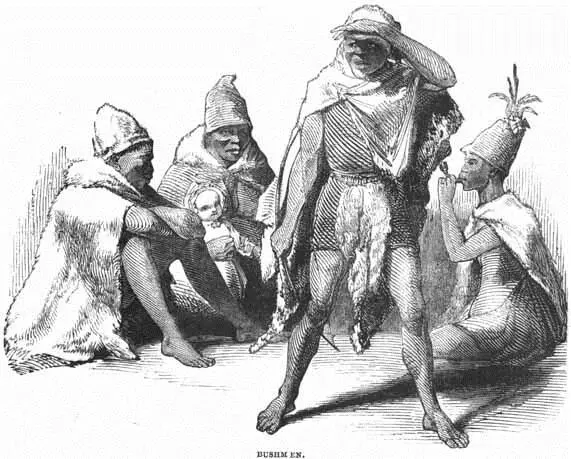
CHARACTER OF ALFRED, KING OF ENGLAND
The merit of this Prince, both in private and public life, may with advantage be set in opposition to that of any Monarch or citizen which the annals of any age or any nation can present to us. He seems, indeed, to be the realisation of that perfect character, which, under the denomination of a sage or wise man, the philosophers have been fond of delineating, rather as a fiction of their imagination than in hopes of ever seeing it reduced to practice; so happily were all his virtues tempered together, so justly were they blended, and so powerfully did each prevent the other from exceeding its proper bounds. He knew how to conciliate the most enterprising spirit with the coolest moderation; the most obstinate perseverance with the easiest flexibility; the most severe justice with the greatest lenity; the greatest rigour in command with the greatest affability of deportment; the highest capacity and inclination for science, with the most shining: talents for action. His civil and his military virtues are almost equally the objects of our admiration, excepting only, that the former, being more rare among princes, as well as more useful, seem chiefly to challenge our applause. Nature also, as if desirous that so bright a production of her skill should be set in the fairest light, had bestowed on him all bodily accomplishments, vigour of limbs, dignity of shape and air, and a pleasant, engaging, and open countenance. Fortune alone, by throwing him into that barbarous age, deprived him of historians worthy to transmit his fame to posterity; and we wish to see him delineated in more lively colours, and with more particular strokes, that we may at least perceive some of those small specks and blemishes, from which, as a man, it is impossible he could be entirely exempted.
Hume.THE FIRST GRIEF
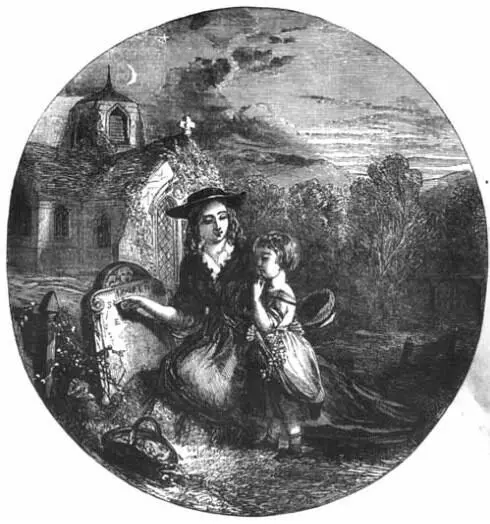
Oh! call my brother back to me,
I cannot play alone;
The summer comes with flower and bee—
Where is my brother gone?
The butterfly is glancing bright
Across the sunbeam's track;
I care not now to chase its flight—
Oh! call my brother back.
The flowers run wild—the flowers we sow'd
Around our garden-tree;
Our vine is drooping with its load—
Oh! call him back to me.
"He would not hear my voice, fair child—
He may not come to thee;
The face that once like spring-time smiled,
On earth no more thou'lt see
"A rose's brief bright life of joy,
Such unto him was given;
Go, thou must play alone, my boy—
Thy brother is in heaven!"
And has he left the birds and flowers,
And must I call in vain,
And through the long, long summer hours,
Will he not come again?
And by the brook, and in the glade,
Are all our wand'rings o'er?
Oh! while my brother with me play'd,
Would I had loved him more!—
ON CRUELTY TO INFERIOR ANIMALS
Man is that link of the chain of universal existence by which spiritual and corporeal beings are united: as the numbers and variety of the latter his inferiors are almost infinite, so probably are those of the former his superiors; and as we see that the lives and happiness of those below us are dependant on our wills, we may reasonably conclude that our lives and happiness are equally dependant on the wills of those above us; accountable, like ourselves, for the use of this power to the supreme Creator and governor of all things. Should this analogy be well founded, how criminal will our account appear when laid before that just and impartial judge! How will man, that sanguinary tyrant, be able to excuse himself from the charge of those innumerable cruelties inflicted on his unoffending subjects committed to his care, formed for his benefit, and placed under his authority by their common Father? whose mercy is over all his works, and who expects that his authority should be exercised, not only with tenderness and mercy, but in conformity to the laws of justice and gratitude.
But to what horrid deviations from these benevolent intentions are we daily witnesses! no small part of mankind derive their chief amusements from the deaths and sufferings of inferior animals; a much greater, consider them only as engines of wood or iron, useful in their several occupations. The carman drives his horse, and the carpenter his nail, by repeated blows; and so long as these produce the desired effect, and they both go, they neither reflect or care whether either of them have any sense of feeling. The butcher knocks down the stately ox, with no more compassion than the blacksmith hammers a horseshoe; and plunges his knife into the throat of the innocent lamb, with as little reluctance as the tailor sticks his needle into the collar of a coat.
Читать дальшеИнтервал:
Закладка:
Похожие книги на «The Illustrated London Reading Book»
Представляем Вашему вниманию похожие книги на «The Illustrated London Reading Book» списком для выбора. Мы отобрали схожую по названию и смыслу литературу в надежде предоставить читателям больше вариантов отыскать новые, интересные, ещё непрочитанные произведения.
Обсуждение, отзывы о книге «The Illustrated London Reading Book» и просто собственные мнения читателей. Оставьте ваши комментарии, напишите, что Вы думаете о произведении, его смысле или главных героях. Укажите что конкретно понравилось, а что нет, и почему Вы так считаете.
